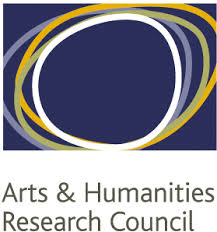 On Thursday 6 February 2014 the Minister for Universities and Science, David Willtts MP, announced funding of £4.6 million for 21 Digital Transformations in the Arts and Humanities projects as part of the Arts and Humanities Research Council (AHRC) investment in Big Data.
On Thursday 6 February 2014 the Minister for Universities and Science, David Willtts MP, announced funding of £4.6 million for 21 Digital Transformations in the Arts and Humanities projects as part of the Arts and Humanities Research Council (AHRC) investment in Big Data.
Along with colleagues in the Department of English & Scottish Literature and the School of Informatics in the University of Edinburgh Aaron Quigley and Uta Hinrichs have been awarded one of largest of these grants for the project Palimpsest: an Edinburgh Literary Cityscape. In this project they aim to create a new, visualised literary cityscape, based on an extensive dataset of literary texts. This project has a focus on Edinburgh but the plan is for the techniques, methods and tools to apply to other UNESCO World Cities of Literature or indeed any literary city.
Palimpsest will be available to an online community of remote visitors, those with an interest in the literature of Scotland and its constituent places who explore the city and its culture from a distance. Palimpsest arises out of the idea of creating an innovative way of engaging people with literature, and drawing on literature’s own dependence on, and engagement with, place and space. Exploration of the relation between urban places and literature first arose in sociology in the mid 19th century. This project represents an excellent example of SICSA academics working together with colleagues in the humanities in making voluminous and varied data accessible for all.
Professor James Loxley from the University of Edinburgh said “We are looking forward to working with expert colleagues at St Andrews on this project. Palimpsest is all about learning to look at the literary writing of Edinburgh in ways that reveal collective imaginative investments in place and patterns within the work of individual authors. Visualisation is key to this – we want to be able to see the literary city, and the city in literature, in new and exciting ways that are also intuitively comprehensible to users coming to the resource for the first time.”
Of the overall funding, Universities and Science Minister David Willetts said: “Getting quality data out of the hands of a few and into the public domain is an important goal for this Government. This funding will help to overcome the challenge of making vast amounts of rich data more accessible and easier to interpret by the public. These 21 projects promise to come up with innovative long-lasting solutions.”
Professor Andrew Prescott the Digital Transformation theme Leadership Fellow commented; “The exciting projects announced by the Arts and Humanities Research Council illustrate how the arts and humanities can help exploit the opportunities offered by these vast data resources. They cover an amazing range of subject areas, from classical history and more efficient retrieval of information about music to the use of online gambling data for more accurate political analysis. By developing better tools for the visualisation and analysis of data, these projects will have significant impact beyond the arts and humanities and will assist the UK in grasping the economic and social opportunities offered by big data.” [1]

